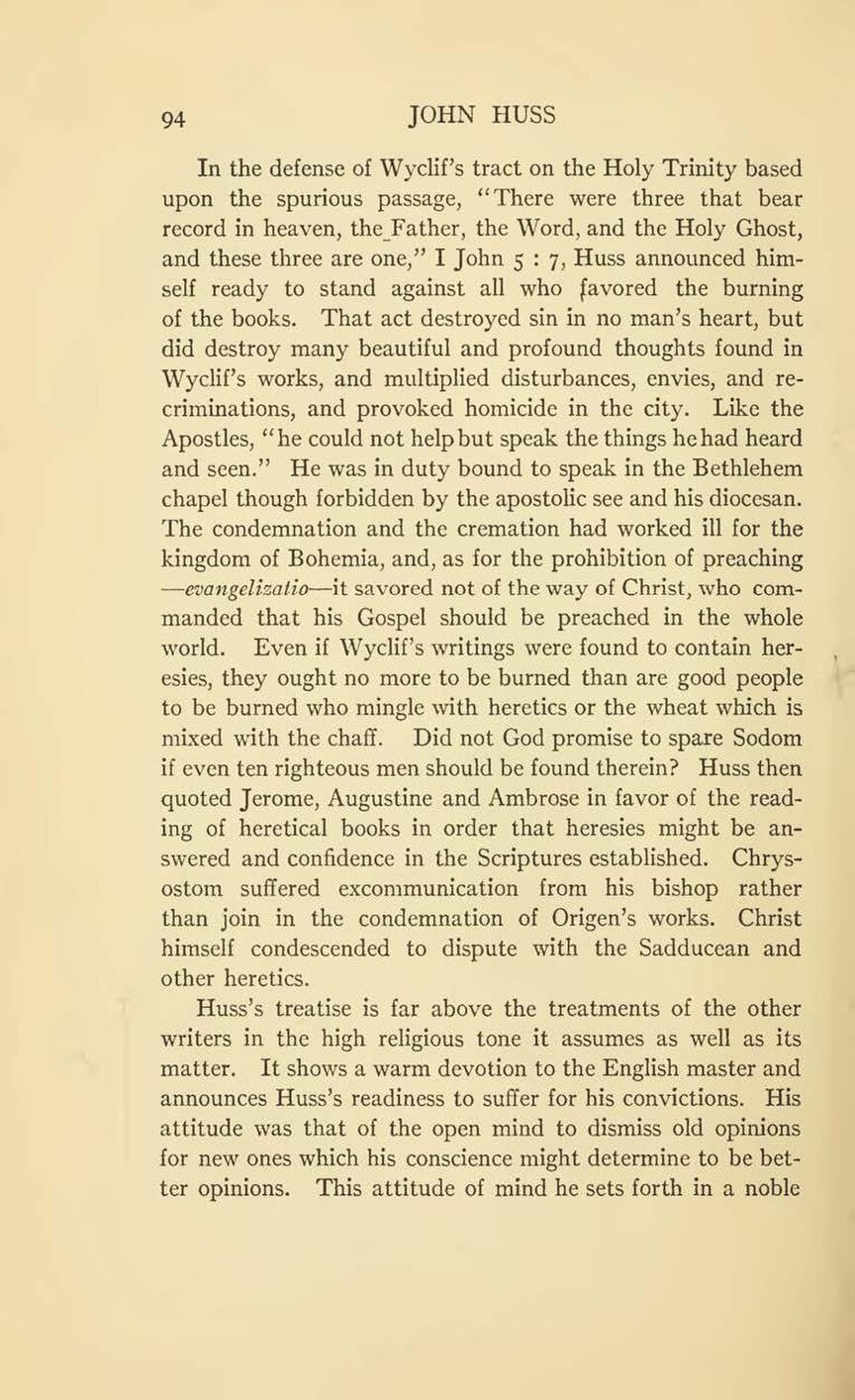In the defense of Wyclif’s tract on the Holy Trinity based upon the spurious passage, “There were three that bear record in heaven, the Father, the Word, and the Holy Ghost, and these three are one,” I John 5: 7. Huss announced himself ready to stand against all who favored the burning of the books. That act destroyed sin in no man’s heart, but did destroy many beautiful and profound thoughts found in Wyclif’s works, and multiplied disturbances, envies, and recriminations, and provoked homicide in the city. Like the Apostles, “he could not help but speak the things he had heard and seen.” He was in duty bound to speak in the Bethlehem chapel though forbidden by the apostolic see and his diocesan. The condemnation and the cremation had worked ill for the kingdom of Bohemia, and, as for the prohibition of preaching—evangelizatio—it savored not of the way of Christ, who commanded that his Gospel should be preached in the whole world. Even if Wyclif’s writings were found to contain heresies, they ought no more to be burned than are good people to be burned who mingle with heretics or the wheat which is mixed with the chaff. Did not God promise to spare Sodom if even ten righteous men should be found therein? Huss then quoted Jerome, Augustine and Ambrose in favor of the reading of heretical books in order that heresies might be answered and confidence in the Scriptures established. Chrysostom suffered excommunication from his bishop rather than join in the condemnation of Origen’s works. Christ himself condescended to dispute with the Sadducean and other heretics.
Huss’s treatise is far above the treatments of the other writers in the high religious tone it assumes as well as its matter. It shows a warm devotion to the English master and announces Huss’s readiness to sufier for his convictions. His attitude was that of the open mind to dismiss old opinions for new ones which his conscience might determine to be better opinions. This attitude of mind he sets forth in a noble
